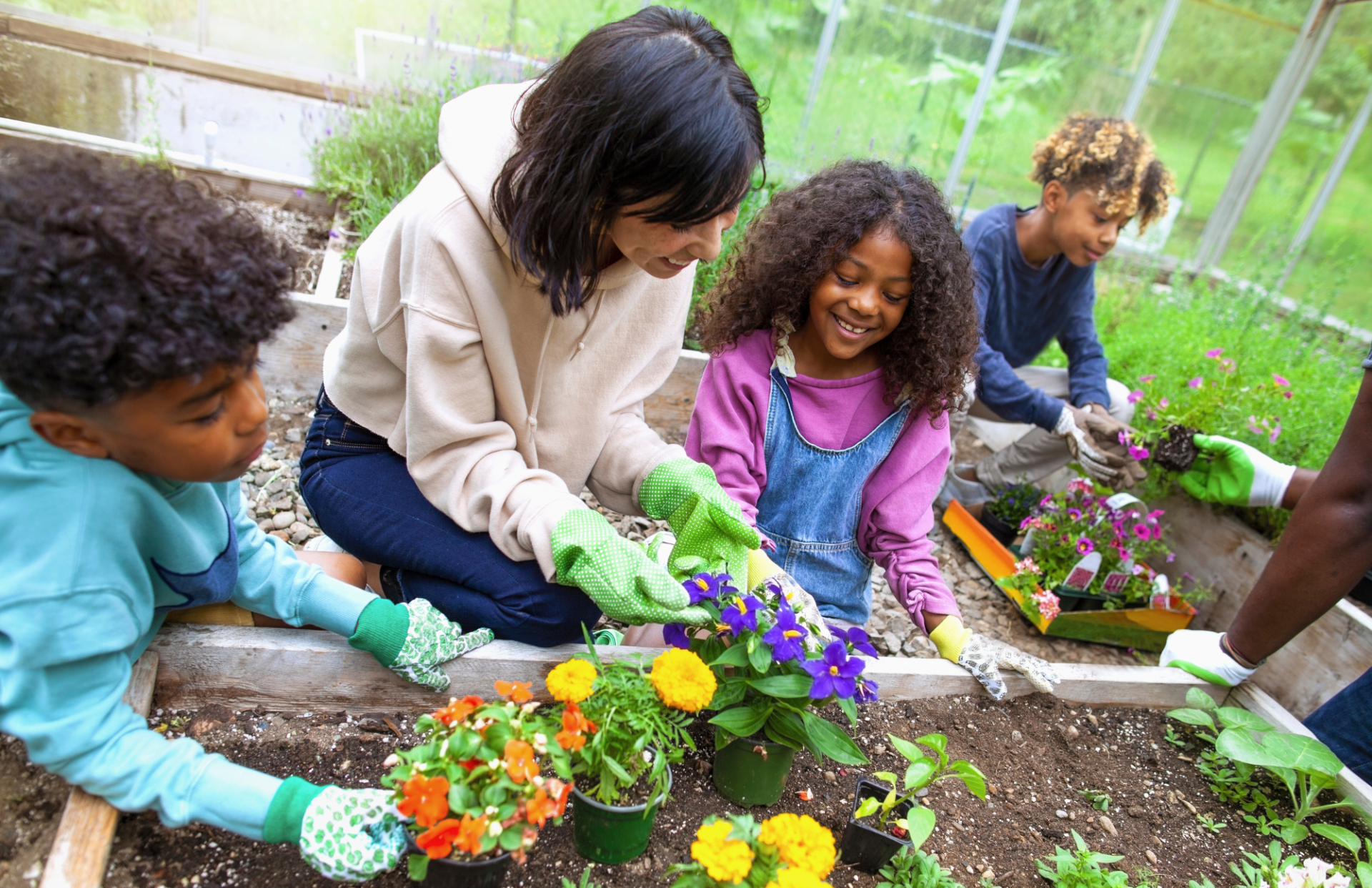
Cultivating Growth: How Gardening Nurtures Our Children's Development
Apr 22
/
TEKU

Gardening isn’t just about planting seeds and watching them grow; it’s a multifaceted activity that can profoundly impact our development across various domains. Kids can greatly benefit from engaging in this beautiful activity, yet grown ups can enjoy growth too! From enhancing motor skills to fostering emotional resilience, gardening offers a rich learning experience that extends far beyond the boundaries of a garden bed. Let’s talk about how gardening strengthens motor, cognitive, social, emotional, and spiritual growth and skills in children.
Motor Skills Development:
Gardening requires physical engagement, from digging and planting to watering and harvesting. These activities promote the development of fine motor skills as children manipulate tools, handle seeds, and delicately tend to plants. Activities like pulling weeds, pruning plants and carrying plants around also enhance gross motor skills as children engage in larger movements, improving coordination and balance.
Cognitive Development:
In the garden, children become natural scientists, observing the life cycle of plants, experimenting with different growing conditions, and problem-solving when faced with challenges like pests or disease. This hands-on approach to learning stimulates curiosity and critical thinking, as children make connections between their actions and the outcomes they observe in the garden. Additionally, gardening provides opportunities for children to learn about math (measuring soil or spacing plants), ecology (understanding ecosystems), and even cultural history (learning about different plants and their uses). Executive functioning, such as listening, taking turns, following instructions and completing a project are also nurtured. We can nourish this curiosity through active observation, listening, answering their questions kindly and challenging them with new ideas and perspectives.
Social Skills Enhancement:
Gardening is often a collaborative endeavor, whether it’s working with family members, classmates, or members of a community garden. Children learn to communicate, cooperate, and negotiate as they work together towards a common goal. Gardening also fosters a sense of responsibility and accountability, as children care for living plants and understand the importance of their contributions to the group effort. As caregivers, we can best support these skills by modeling these behaviors ourselves.
Emotional Well-being:
Connecting with nature has been shown to have numerous psychological benefits, and gardening provides children with a tangible way to experience these benefits firsthand. Tending to plants can be calming and meditative, reducing stress and anxiety. Witnessing the growth of a plant from seed to harvest instills a sense of accomplishment and pride, boosting self-esteem. Moreover, the nurturing aspect of gardening teaches empathy and compassion as children learn to care for living organisms. Adults can nourish these perspectives by offering stories that highlight the similarities between plant and human life and development.
Spiritual Growth:
Gardening can also nurture children’s spiritual growth. Engaging with the natural world encourages a sense of wonder and awe, fostering a deeper connection to something greater than oneself. Gardening can also provide opportunities for reflection and introspection, as children observe the cycles of life and contemplate their place within the larger web of existence. Most importantly, as caregivers of plants and nature, we are reminded of how we are interconnected and interdependent with each other and our mother Earth.
Family Connection:
We have mostly highlighted the benefits of gardening on children’s development, but there is more to this story! In order for kids to actually receive all of these benefits, it is important that we, as the adults and caregivers, create an environment that fosters learning and engagement. Important ingredients to foster these safe, fun and engaging experiences include patience, lots of observation and allowing kids to actually do things on their own. As caregivers, we can sometimes struggle to center these values as our expectations of what “should be” happening are misaligned with reality and what is developmentally possible. In order for kids to enjoy these experiences, we must allow them to experiment, make mistakes and take their time to accomplish their tasks. Therefore, in order for kids to grow, we must allow them to do so, and in the process, we are growing as well.
Gardening is much more than a hobby or a pastime—it’s a holistic learning experience that nourishes children’s minds, bodies, and spirits. By engaging in hands-on activities in the garden, children develop essential skills and qualities that will serve them well throughout their lives. From honing motor skills and critical thinking to fostering social connections and emotional resilience, the benefits of gardening are abundant and far-reaching. Let’s encourage our children to dig in the dirt, plant seeds of curiosity, and watch as they blossom into confident, compassionate individuals, rooted in a love for nature and the world around them.
Teku
-
Home
-
About
-
Our work
-
Contact us
-
Communities
-
Sign in
-
Blog
Copyright © 2023 TEKU Inc
